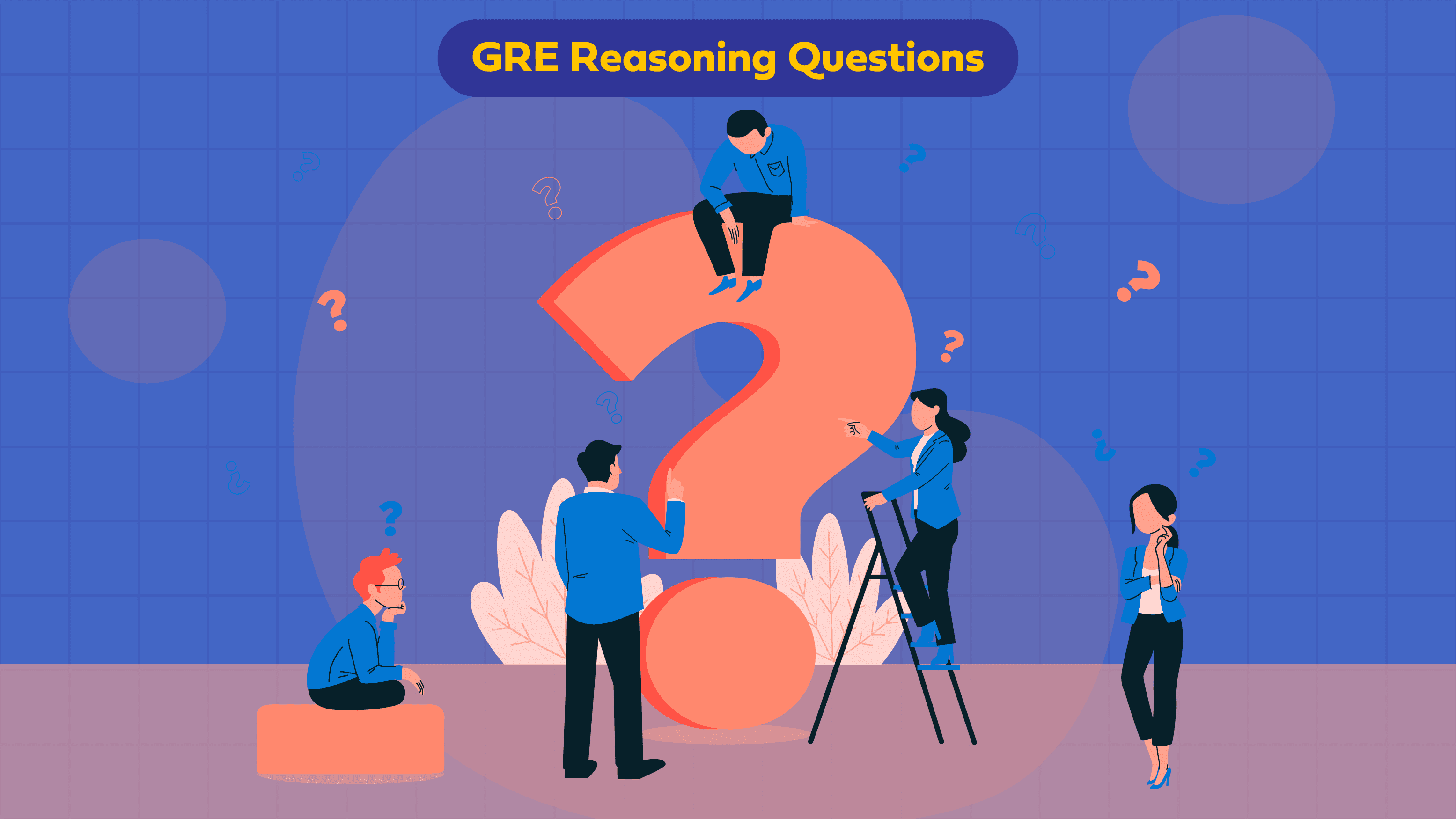The GRE Reasoning questions come in the Verbal section of the GRE exam. The GRE Critical Reasoning questions are followed by multiple-choice answers and you have to select the most appropriate one. If you want to ace these questions, you have to learn how to interpret the given statement. Besides, there are no specific topics from which the questions are asked, therefore, you must be well prepared to read and analyze information from a wide range of topics.
Types of Critical Reasoning Questions
- Draw Inference/Conclusion
- Complete the Passage- Dialogue structure questions or Boldface structure questions
- Explain the paradox
- Evaluate the conclusion
- Strengthen the argument
- Weaken the argument
- Find the assumption
- Complete the argument
Strategies to Keep in Mind While Answering the GRE Reasoning Questions;
- You will need to initially recognize the facts presented in the argument. Determine what is the premise and what is the conclusion.
- Before you proceed to read the passage it is recommended that you first go through the questions so you will be able to look for the answers when you read the passage. You can practice active reading instead of reading each and every line of the passage. This will help in saving a lot of your valuable time in the exam.
- You will need to recognize which type of question is being asked, whether it is a strengthen/weaken the argument, inference questions, etc. This will help you immensely to reach the final answer.
- Instead of reading the passage from the author’s point of view, you can paraphrase it in your own words. Doing so will help you make any complex sentence simpler.
- For the assumption/inference based questions you can imitate the same reasoning in the question. Since in most cases the answer will also follow the same format — the argument structure, answer length, etc. — you will have to look for the option that supports and reinforces the conclusion/given evidence. The assumption questions will require you to find the premise (the starting point of an argument) and the conclusion (what the author wants you to believe by the end of the argument). You must remember that a conclusion can’t be reached without another piece of additional information. That missing information is the assumption.
- Ensure to answer the question which is being asked in a direct manner instead of deviating from the same. It is easy to get distracted while answering these questions in a short period of time but you must always be attentive to the details.
- Don’t choose a very complicated answer which is seldom the correct option. It is always the most simple answer which is the right one.
- For the strengthen/weaken the argument types of questions, you must first identify which of the options strengthens or weakens the argument and then proceed to select the appropriate choice.
- A four step approach that you need to follow for any GRE Critical Reasoning question is — to ask the right questions, recognize which question type is asked, analyse the argument and finally, eliminate incorrect answers.
- You must be aware of the difference between an assumption and the conclusion. An assumption is basically an implied proposition, for these questions you can try and negate the answer choices to see if the conclusion can still survive.
- For the strengthen the argument questions, after recognizing the conclusion, you will need to look for information that is not present in the given facts. You will be able to strengthen the evidence with this new piece of information provided. The answer is almost always in the statements, which connect both the conclusion and the evidence.
- Unlike the strengthening the argument question, for the weakening of the argument question, you will need to make an assumption that a particular answer choice is true. You will have to identify if there are any errors which are present in the scenarios given by the author.
We trust that this article has given you some insights about the GRE reasoning question types and the strategies you can use to solve these questions.
All the best!











Talk to an expert?